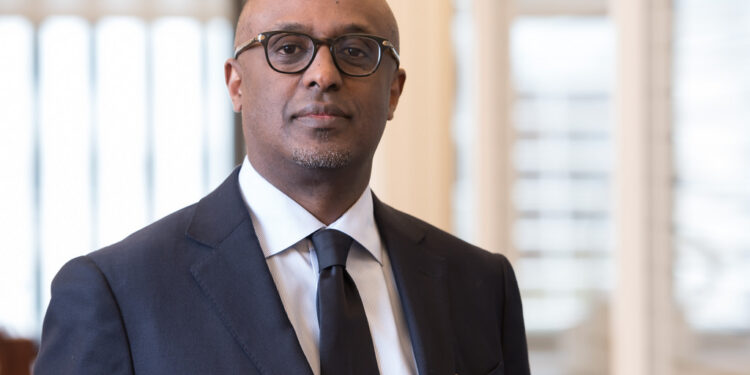Mr. Abebe Aemro Selassie, Director, African Department, International Monetary Fund has said that Nigeria and other African countries ensure their economies are attractive to reduce the mass exodus of Africans to other parts of the world.
Selassie stated this at a press briefing on the Sub-Saharan Africa Regional Economic Outlook.
Selassie was speaking against the backdrop that those who are supposed to develop Africa are running away daily in their thousands to other parts of the world leading to the rising wave of brain drain.
- “I think ultimately, it’s making sure that our economies are as attractive, as robust as possible. And that goes back to the point I was making earlier that the reforms that we need to do are not so much for attracting businesses from outside but making it possible for our people to flourish. To do the best and to get the best out of it.
- Second, yes, it is a drain, but I think we also need to see ways in which we can have people outside the continent contributing back to the continent.
- So, even if you cannot stop them from leaving because they have better opportunities outside. But once they’re outside, I think finding ways in which they can continue to contribute, of course, how important remittances are for our countries right now, but also finding ways in which you can attract more investment perhaps is also another way that we can work on once people have left the continent,” he said.
Nigerian debt
Speaking on Nigeria’s debt Selassie said the most important cause of the pressures is the fact that the government doesn’t generate enough tax revenues for all the services it needs to provide.
He noted that interest payment as a share of revenues is very high and does not leave much room to spend on other issues.
- “I think that is the key issue and the one that needs to be worked on. Why is there not enough tax revenue? I think in the past, there was over-reliance on oil, and that was when prices were high. Second, of course, also the subsidy regime, which also implies, entails, quite a lot of loss of government resources being directed where they perhaps should not be.
- So, I think these are all interlinked issues, including causing some of the inflation that you’re seeing, because, given the difficulty of tapping international capital markets, the government has had to rely more on domestic financing, which has either crowded out the private sector or of course caused the monetary injection, which again has weakened the exchange rate.
- So, you have a medley of things mainly rooted in the fiscal challenges that Nigeria has faced, not having tax revenues. At the same time, this is a country with incredible potential,” he said.
Current economic reforms
Selassie noted that the IMF has seen reforms moving in the right direction in recent months.
- “What is needed, we feel, is making the reforms holistic and helping reinforce each other. Just as things are not reinforced, and were not reinforcing each other in the past, I think there is scope to make the reforms reinforce each other. So, the exchange rate reforms that the government did were very, very welcome, trying to unify the rate and the fuel subsidy. But that will not help and will not stick unless you are tightening monetary policy unless you’re also doing something to mobilize more tax revenues. So, a holistic package of reforms is what’s needed, and I think we have to give a bit of time to the new administration.
- I mean, the Central Bank Governor has just been appointed. The Minister of Finance has only been in the office for a few weeks. So, we’re hopeful that they will move in the right direction, and we stand there to provide any policy advice the government needs,” he said.
















AFRICA AS A CONTINENT HAS POTENTIAL TO DEVELOP.
Mr. Selassie made solid points for African leaders to use and change the narrative. Most African leaders are selfish. These leaders mostly, when given political space to operate, they kill the indigenous companies. When business opportunities are created by these leaders, it will reduce the Brain drain on the continent. This will inturn increase their tax revenue to embark upon the developmental projects that will benefit the people.
The backbone of Africa is Agriculture. Heavily reliance on oil may result in hardship in the respective countries and the Continent at large. As Mr. Selassie pointed out, hike in oil price without correspondence hike in agriculture produces, will cause serious problem on the continent. Look, this problem is not far from us, it is with us.
African leaders need to rethink with their approach to creating business opportunities for those who travelled to invest on the Continent.
Here, the leaders concerned, need to use fiscal policies to attract the Africans who made it outside to come home and invest. The fiscal measures to be put in place, must be robust in protecting their investment devoid of political victimisation.
Mr. Selassie, thank you very much. Your write up is African leaders to stop being selfish thinking, but patriotic thinking. This goes to all Africa leaders and potential leaders.
Africa as continent, has all the resources that we need to develop. We are our own enemies.
What our governments need to do is to create enabling business environment to attract our brothers and sisters who made it outside to come home to invest.
Mr. Selassie thank you.